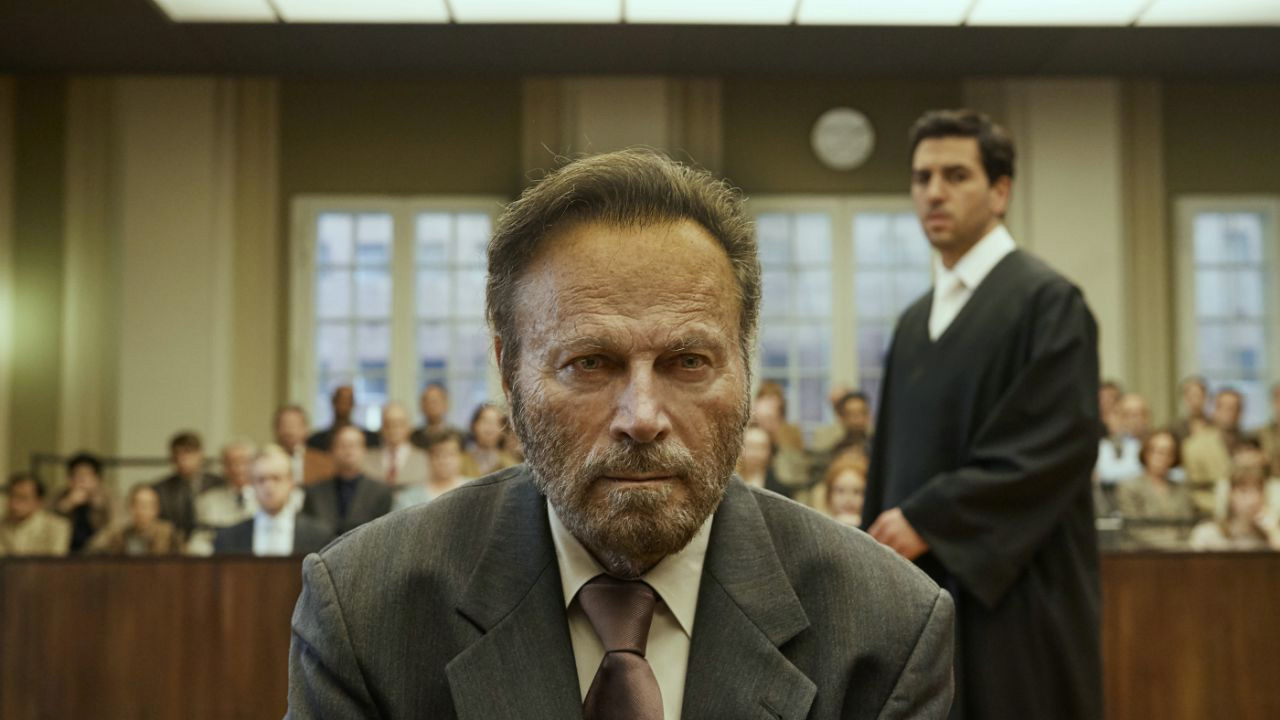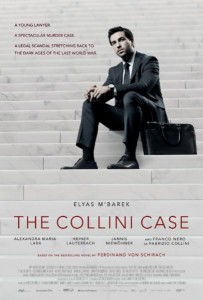It all started before 2001 at Montecatini, a Tranquil Town in Tuscany and not far away from the town Andrea Bocelli launched today Europe 2020
The Collini Case" - Veteran director Marco Kreuzpaintner gives us a murder case plus. A court-appointed attorney unearths a legal scandal dating back to the Nazi era.
What if a legal system designed to carry out justice for all failed to recognize unspeakable crimes and left countless victims of hate abandoned along the way? This isn’t just one of the many questions on our country’s collective consciousness right now.
A few shots of Montecatini in the film are bound to bring huge tourism to Tuscany in post Covid world
The Collini Case is based on Ferdinand von Schirach’s novel of the same name about an explosive murder trial. It was a sensation when it was published in Germany in 2011 as it featured a character based on von Schirach’s own infamous grandfather, the leader of the Hitler Youth during the Second World War. Franco Nero plays a man who commits a murder seemingly in cold blood. Elyas M’Barek stars as the lawyer who takes on his case and untangles a crime stretching back to the Nazi era. Alexandra Maria Lara also stars.

Unlike most films of the genre, the story here does not focus entirely on the search for the murderer. The viewer's attention turns instead to the search for motives, trying to rebuild the two men's personal tragedies. Caspar’s tireless investigation will lead him to uncover a major scandal in the German justice system and a brutal war crime that took place in Tuscany at the end of the Second World War.
The film is characterised by a solid, involving script and great acting. M'Barek's determination is plain to see on screen, and while his inner conflicts are not too evident in most of the scenes showing his investigation, his meetings with witnesses or him making his case in court, these are well conveyed through a few sequences interspersed throughout the narration that show him training in a boxing ring. Meanwhile, Nero's interpretation sparkles especially through his silences, red eyes and hesitations, which say much more about his troubled soul than the few lines he pronounces throughout the film.
Collini Case’ Made Into Film by Constantin
Constantin Film is adapting German author Ferdinand von Schirach’s international bestseller “The Collini Case,” a legal thriller that deals with Germany’s Nazi past and that was inspired by the author’s own family history.
Elyas M’Barek (pictured), of “Fack ju Göhte” fame and one of Germany’s leading actors, toplines the film, “Der Fall Collini,” which is being directed by Marco Kreuzpaintner from a screenplay by Christian Zuebert, Robert Gold and Jens-Frederik Otto. M’Barek plays an attorney who takes on a defendant accused of the vicious murder of a respected elderly businessman. In researching the case, the young lawyer comes across one of the biggest judicial scandals in German history and a truth that nobody wants to face.

Rating: Not Rated
Stars: Elyas M’Barek, Alexandra Maria Lara, Heiner Lauterbach, Manfred Zapatka, Franco Nero
Writers: Christian Zubert & Robert Gold & Jens-Frederick Otto, based on the novel by Ferdinand von Schirach
Director: Marco Kreuzpaintner
Distributor: MPI Media Group
Release Date: June 5, 2020
THE COLLINI CASE (DER FALL COLLINI) is set in Germany in 2001, with a few trips to Italy. In contemporary films, bringing together Germany and the year 2001 now seems to be code for a certain type of subject matter. With THE COLLINI CASE in particular, it might have been a good idea to acknowledge this and bring the topic up much sooner, rather than treating it as cause for suspense.
THE COLLINI CASE is based on the acclaimed novel by Ferdinand von Schirach, which is in turn reportedly based on some actual events. When we get to the film’s main point, an innocuous-sounding but shocking legal issue, we sit up and take notice. How we get there is another matter.
Newly-minted defense attorney Caspar Lienen (Elyas M’Barek), eager as a puppy, is happy to take on his first court case. At the outset, it looks bad for the defense, since Caspar’s client, Fabrizio Collini (Franco Nero), doesn’t deny his own guilt in the premeditated shooting of wealthy industrialist Jean-Baptiste Meyer (Manfred Zapatka). Forensic evidence all points to Collini, who hasn’t uttered a word since his arrest.
So far, this is typical legal drama fare. But the murder victim isn’t some stranger to our hero. Meyer was a fatherly presence in Caspar’s life, providing him with an education and putting him through law school. With no idea of how German law works around this kind of conflict of interest, this reviewer can’t even guess how this part of the story plays in THE COLLINI CASE’s country of origin. To an American viewer, it’s an almost insurmountable red flag. It defies logic if not legality that anybody (including the attorney) would be in favor of someone with Caspar’s relationship to the deceased defending the man’s accused killer.
Further unlikelihood develops as Caspar resumes his romance with the victim’s granddaughter Johanna (Alexandra Maria Lara), even though she strenuously and understandably objects to his defending Meyer’s murderer. One of Caspar’s courtroom adversaries turns out to be none other than his old law professor (Heiner Lauterbach). The same stakes could surely have been raised in more plausible ways.
The set-up seems so improbable that the payoff needs to be spectacular. In a way, it is, but this is not thanks to the build-up or otherwise routine, albeit scenic, drama surrounding it.
Director Marco Kreuzpaintner has a good eye for atmosphere, and creates strong emotion in some flashback scenes. He also has many good actors, with M’Barek radiating integrity and charisma, Lauterbach exuding urbane wisdom, and Nero silently expressing so much inner tumult that he draws us into his torment.
THE COLLINI CASE does a public service by shedding a harsh spotlight on unjust laws and how they are easily made. It’s enough to make some of us want to investigate some other banal-sounding bills in other countries. It’s a worthy film, but there are better ways of introducing its arguments.
Nora Nora Bene: If you thought the first half of the slick French Republique heist thriller Lupin was already exciting, it’s really ramped up the fireworks for the second five episodes
